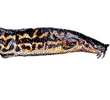Hybrid danger?
Hybrid danger?
Right now I have 2 Corydoas habrosus in a 10g tank. I got the last few at the store and now all I can find are C. pygmaeus. Will these two species produce hybrids? Will either of them produce hybrids with C. hastatus? Thanks for any insight anyone can provide.
- Coryman
- Expert
- Posts: 2119
- Joined: 30 Dec 2002, 19:06
- My articles: 12
- My catfish: 5
- My cats species list: 83 (i:0, k:0)
- My BLogs: 1 (i:0, p:46)
- Spotted: 194
- Location 1: Kidderminster UK
- Location 2: Kidderminster, UK
- Interests: Cory's, Loricariids, photography and more Cory's
- Contact:
- MatsP
- Posts: 21038
- Joined: 06 Oct 2004, 13:58
- My articles: 4
- My images: 28
- My cats species list: 117 (i:33, k:0)
- My aquaria list: 10 (i:8)
- My BLogs: 4 (i:0, p:164)
- Spotted: 187
- Location 1: North of Cambridge
- Location 2: England.
I don't know the answer to your actual question, but certainly species that are found near each other in nature are LESS likely to cross between species - this is because they would never have become separate species if they were able to cross back and forth, there would just be one (inbetween) species left in the long term. So species found in the same area would be MORE likely to not have offspring with each other, if you see what I mean.
I think what Ian meant with "naturally" is "without human intervention", such as treatment with hormones or similar.
--
Mats
I think what Ian meant with "naturally" is "without human intervention", such as treatment with hormones or similar.
--
Mats






